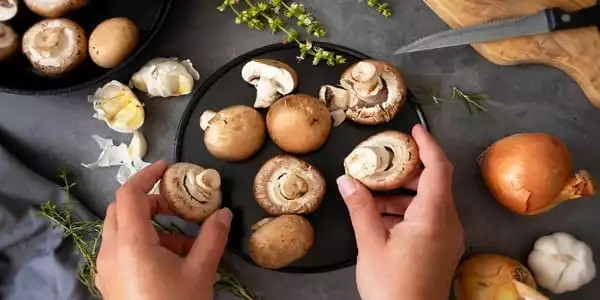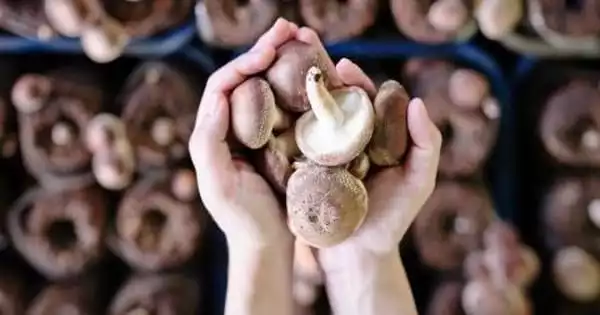A new Penn State study finds a link between eating mushrooms on a daily basis and a lower risk of depression. Mushrooms contain a number of substances that have been linked to antidepressant properties. This study lays the groundwork for future research into a possible link between mushroom consumption and a lower risk of depression.
Mushrooms have recently made headlines due to their numerous health benefits. Not only do they reduce the risk of cancer and premature death, but new research led by Penn State College of Medicine suggests that these superfoods may also benefit one’s mental health.
Penn State researchers analyzed diet and mental health data collected from over 24,000 adults in the United States between 2005 and 2016. They discovered that people who ate mushrooms had a lower risk of depression.
Mushrooms have recently made headlines due to their numerous health benefits. Not only do they reduce the risk of cancer and premature death, but new research suggests that they may also benefit a person’s mental health.
Joshua Muscat
Mushrooms contain ergothioneine, an antioxidant that may protect against cell and tissue damage in the body, according to researchers. Antioxidants have been shown in studies to help prevent a variety of mental illnesses, including schizophrenia, bipolar disorder, and depression.
“Mushrooms are the highest dietary source of the amino acid ergothioneine — an anti-inflammatory that humans cannot synthesize,” said lead researcher Djibril Ba, who recently graduated from the College of Medicine’s epidemiology doctoral program. “High levels of this may reduce the risk of oxidative stress, which may also reduce depression symptoms.”
White button mushrooms, the most commonly consumed mushroom variety in the United States, contain potassium, which is thought to reduce anxiety. Furthermore, certain edible mushroom species, particularly Hericium erinaceus, also known as Lion’s Mane, may stimulate the expression of neurotrophic factors such as nerve growth factor synthesis, which may have an impact on the prevention of neuropsychiatric disorders such as depression.

The researchers discovered that college-educated, non-Hispanic white women were more likely to consume mushrooms. The average age of those polled was 45, and the vast majority (66 percent) were non-Hispanic white people. After controlling for socio-demographics, major risk factors, self-reported diseases, medications, and other dietary factors, the researchers discovered a significant association between mushroom consumption and lower odds of depression. They did, however, state that there was no clear additional benefit to eating a lot of mushrooms.
“The study adds to the growing list of potential health benefits of eating mushrooms,” said Joshua Muscat, a Penn State Cancer Institute researcher, and public health sciences professor. A secondary analysis was carried out to see if the risk of depression could be reduced by replacing a serving of red or processed meat with a serving of mushrooms each day. The findings, however, show that this substitution was not associated with a lower risk of depression.
Prior to this study, there had been only a few studies that looked at the link between mushroom consumption and depression, and the majority of them were clinical trials with fewer than 100 participants. According to the researchers, this study emphasizes the potential clinical and public health importance of mushroom consumption in reducing depression and preventing other diseases.
Surprisingly, the researchers did not find a similar reduction in depression among those who consumed the most mushrooms (19.6 g per day), implying that a median intake is a sweet spot for depression relief. Dr. Muscat, on the other hand, speculated that “the number of study participants [who] consumed a half-serving size of mushrooms or more was quite small, so it could just be statistical variation.”
“Alternatively,” he continued, “if mushrooms prevented depression, you would expect to see a greater effect in those who consumed the most, so either the protective effect in the middle consumption group is not real, or there are other factors obscuring the association in the highest tertile that we simply do not know about.”
Some limitations were identified by the researchers, which could be addressed in future studies. The data did not provide information on the different types of mushrooms. As a result, the researchers were unable to determine the effects of specific mushroom types on depression. Because food codes issued by the United States Department of Agriculture were used to determine mushroom intake, some entries may have been mis-classified or incorrectly recorded.
















